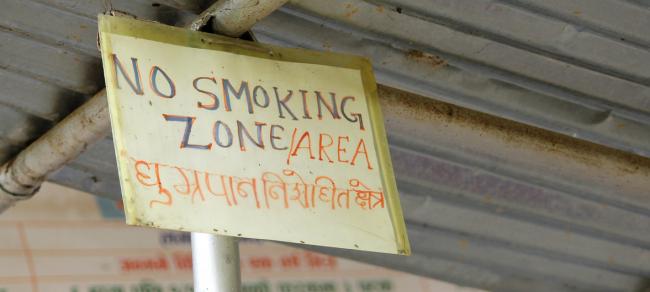
New UN health agency regulation guidelines aim to help countries end ‘reign’ of tobacco industry
New York, Mar 10 (JEN):The United Nations World Health Organization (WHO) on Friday launched new guidelines on the role that tobacco product regulations can play in saving lives by reducing the demand for tobacco and tobacco products – estimated to kill over seven million people annually.
The new guide together with an accompanying publication will help governments “do much more” to implement regulations and address the exploitation of tobacco product regulations, highlighted the UN health agency.
“The tobacco industry has enjoyed years of little or no regulation, mainly due to the complexity of tobacco product regulation and lack of appropriate guidance in this area,” said Douglas Bettcher, the Director of the WHO Department for the Prevention and Control of Noncommunicable Diseases.
“Tobacco product regulation is an under-utilized tool which has a critical role to play in reducing tobacco use [and] these new tools provide a useful resource to countries to either introduce or improve existing tobacco product regulation provisions and end the tobacco industry ‘reign’,” he added.
The guide, titled Tobacco product regulation: Building laboratory testing capacity, provides practical and stepwise approaches to implementing tobacco testing relevant to a wide range of countries, especially those with inadequate resources to establish testing facilities.
It also provides regulators and policymakers with comprehensible information on how to test tobacco products, what products to test, and how to use testing data in a meaningful manner to support regulation.
The guidelines will also assist in the implementation of the WHO Framework Convention on Tobacco Control – a global treaty combatting the tobacco epidemic – through strengthening tobacco product regulation capacity in WHO member States.
“Failure to regulate is a missed opportunity as tobacco product regulation – in the context of comprehensive control – is a valuable tool that complements other tried and tested tobacco control interventions, such as raising taxes, and ensuring smoke-free environments,” he explained.According to Vinayak Prasad, the head of the Tobacco Free Initiative at WHO, most countries “hesitate” to implement policies, due in part to the highly technical nature of such policy interventions and the difficulties in translating science into regulation.
The accompanying publication, Case studies for regulatory approaches to tobacco products – Menthol in tobacco products, includes practical steps as well as policy options countries can employ to make regulations more effective, such as the regulators’ enforcement of a total ban on the use of flavours in tobacco products such as menthol.
The guidance document and the accompanying publication were launched at the 2018 World Conference on Tobacco or Health in Cape Town, South Africa.
World Bank/Aisha Faquir
Support Our Journalism
We cannot do without you.. your contribution supports unbiased journalism
IBNS is not driven by any ism- not wokeism, not racism, not skewed secularism, not hyper right-wing or left liberal ideals, nor by any hardline religious beliefs or hyper nationalism. We want to serve you good old objective news, as they are. We do not judge or preach. We let people decide for themselves. We only try to present factual and well-sourced news.







